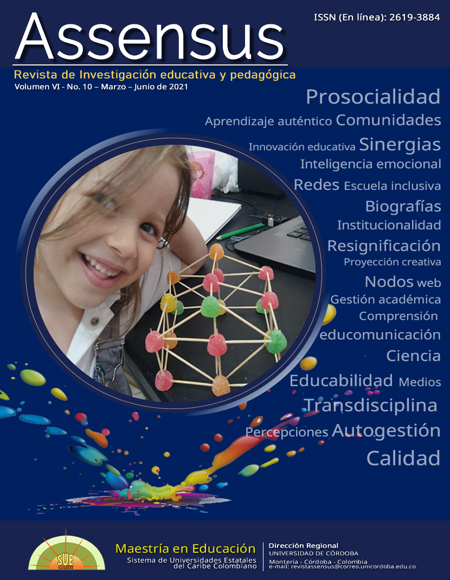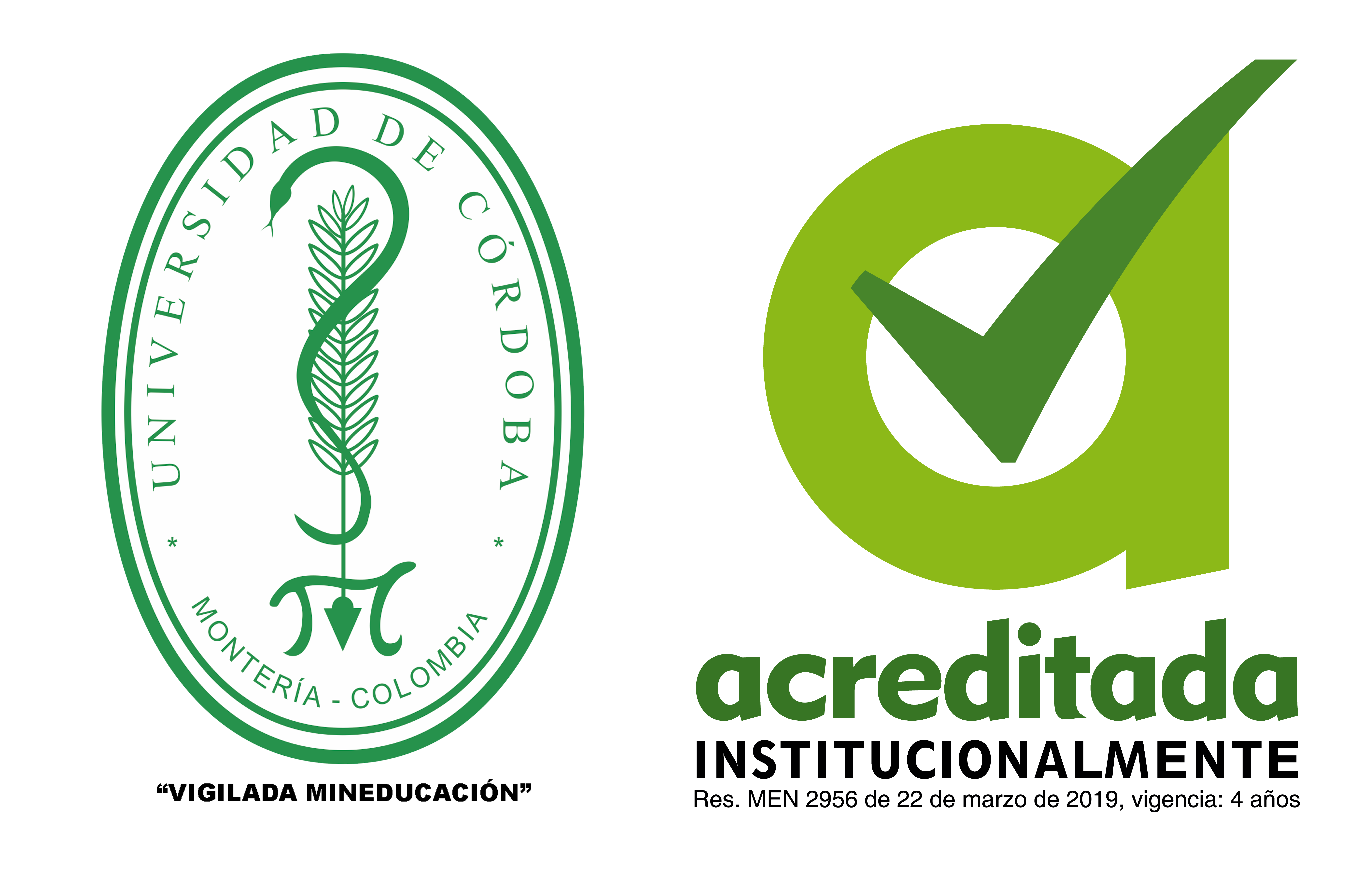Scenario of joint construction of knowledge mediated by ICTs in the area of philosophy
Escenario de construcción conjunta del conocimiento mediado por las TIC en el área de filosofía
The Assensus journal has a Creative Commons license. The citation, use and partial or total reproduction of the contents is authorized by citing sources. For more information, see https://creativecommons.org/licenses/by-sa/4.0/deed.en
Show authors biography
The philosophy teacher is called to seek alternatives to enhance the learning of students in a significant way through the use of technological tools, therefore, this article shows the results of the research that aimed to assess the impact of the implementation of scenarios for the construction of knowledge in the area of philosophy mediated by the creation of a YouTube channel in the 10th grade of the Higher Normal Educational Institution of Sahagún, Córdoba. Thus, the learning environments in the area of philosophy that incorporate ICT not only provide a series of technological tools, resources and computer and telematics software applications, which teachers can use to teach and, for their part, students to learn. A qualitative research was carried out with a phenomenological modality, based on an action research approach where the focus group, the interview and the observation were used as information gathering techniques. The results obtained reflected that the knowledge and management of teachers about ICT is one of the elements that conditions the optimization of pedagogical practice and the articulation of technological resources in academic processes. In accordance with this, the pedagogical practices of the philosophy teachers of the Higher Normal Educational Institution of Sahagún show the low or null integration of ICT to them. For this reason, the creation of a YouTube channel made it possible to assimilate in a simple way the development of the learning and teaching activities proposed in the pedagogical proposal, which aroused an active participation in the students that contributed and fostered enthusiasm for learning, and the assessment of philosophical knowledge and personal achievements.
Article visits 298 | PDF visits
Downloads
- Acevedo, L. (2000). Aprendizaje significativo por competencias. Investigación Educativa, 4(7), 18-24
- Área, M. (2014). Informe sobre tendencias sociales y educativas en América Latina. España: Edullab.
- Barantes, L. (2018). El uso de material didáctico y las tecnologías de información y comunicación (TIC) para potencializar los procesos académicos en básica primaria. Ecuador. Universidad Técnica de Cotopaxi.
- Batista, A., Celso, V y Usubiaga, G. (2015). Tecnologías de la información y la comunicación en la escuela: trazos, claves y oportunidades para su integración pedagógica. Argentina: Curriform pública.
- Campuzano, S. (2005). Plan operativo para el desarrollo de la investigación. Universidad Colegio Mayor De Cundinamarca
- Castro, D., Fonseca, K y Mesa, N. (2014). Diseño e implementación de un sitio web y una plataforma virtual de aprendizaje como estrategia para promover el programa de licenciatura en ciencias sociales y educación ambiental de la universidad de Cartagena. Colombia. Universidad de Cartagena.
- Cebrián, M. (2017). Qué es la tecnología educativa. Málaga, España.
- Cowman S. (1993). Triangulation: a mean of reconciliation in nursing research. Journal of Acvanced Nursing, 18, 788-792.
- Crispín, M. (2010), Aprendizaje autónomo : orientaciones para la docencia. Universidad Iberoamericana.
- Elliot, J. (2000). El cambio educativo desde la investigación-acción. Madrid: Morata. P. 88.
- Hernández Requena, S. (2008). El modelo constructivista con las nuevas tecnologías: aplicado en el proceso de aprendizaje. RUSC. Universities and Knowledge Society Journal, 5(2),26-35. Recuperado de: https://www.redalyc.org/articulo.oa?id=780/78011201008
- Hernández, R. (2014). Formulación de hipótesis. México. McGraw Hill.
- Hernández, R y Opazo, H. (2010). Apuntes de Análisis Cualitativo en Educación. Universidad Autónoma de Madrid, Obtenido de http://www.uam.es: http://www.uam.es/personal_pdi/stmaria/jmurillo/Met_Inves_Avan/Materiales/Apuntes_Cualitativo.pdf.
- Hincapié, J. (2014). Construyendo el concepto de Fracción y sus diferentes Significados, con los Docentes de Primaria de la Institución Educativa San Andrés de Girardota. Tesis De Grado. Universidad Nacional De Colombia. Medellín.
- Husserl, E. (1998). Invitación a la fenomenología. Barcelona: Paidós.
- Ministerio de Educación Nacional. (2004). Una llave Maestra, las Tics en el aula. Bogotá, Colombia.
- Paolini, P y Fessia, T. (2016). Tecnologías de la información y comunicación en el aprendizaje. Colombia : Universidad de Antioquia .
- Pardo, D. (2009). Plataformas virtuales para la educación. Obtenido de Plataformas virtuales para la educación: http://www.laempresaeninternet.com/internet-y-tic/plataformas-virtuales-para-la-educacion.html.
- Peña, M. (2007). La enseñanza en entornos virtuales de aprendizaje. España: Fundación Universitaria Iberoamericana FUNIBER.
- Quiroz, S. (2011). La bidireccionalidad en la comunicación. España: Fundación Universitaria Iberoamericana FUNIBER.
- Restrepo, B. (2006). La Investigación-Acción Pedagógica, variante de la Investigación-Acción Educativa que se viene validando en Colombia. Revista de la Universidad de La Salle, (42), 92-101.
- Rodríguez, S. (2010). Métodos de investigación en Educación Especial, 3ª Educación Especial. Obtenido de https://www.uam.es/personal_pdi/stmaria/jmurillo/InvestigacionEE/Presentaciones/Curso_10/Inv_accion_trabajo.pdf.
- Sánchez, L. E. (2010) Constructivismo: de clasificaciones y categorías [En línea]. II Jornadas de Relaciones Internacionales de FLACSO, 20 al 21 de septiembre de 2010, Ciudad Autónoma de Buenos Aires. Poderes emergentes. ¿Hacia nuevas formas de concertación internacional? Disponible en Memoria Académica: http://www.memoria.fahce.unlp.edu.ar/trab_eventos/ev.896/ev.896.pdf
- Stake, R. (2010). Investigación con estudio de casos. Madrid: Morata.
- Tovar, B. Gutiérrez, A. Pinilla, D y Parra, C. (2016). Límites del constructivismo. Universidad de la Sabana, Facultad de Educación.
- UNESCO (2004). Informe mundial sobre educación 1998. Los docentes y la enseñanza en el mundo en mutación. Madrid, España: Santillana. Obtenido de http://www.unesco.org/new/es/unesco/about-us/who-we-are/history
- UNESCO (2017). La agenda 2030 para el desarrollo sostenible. Francia: place de Fontenoy.
- Vera, L. (2005). La investigación Cualitativa. UIPR. Ponce: UNPR.



